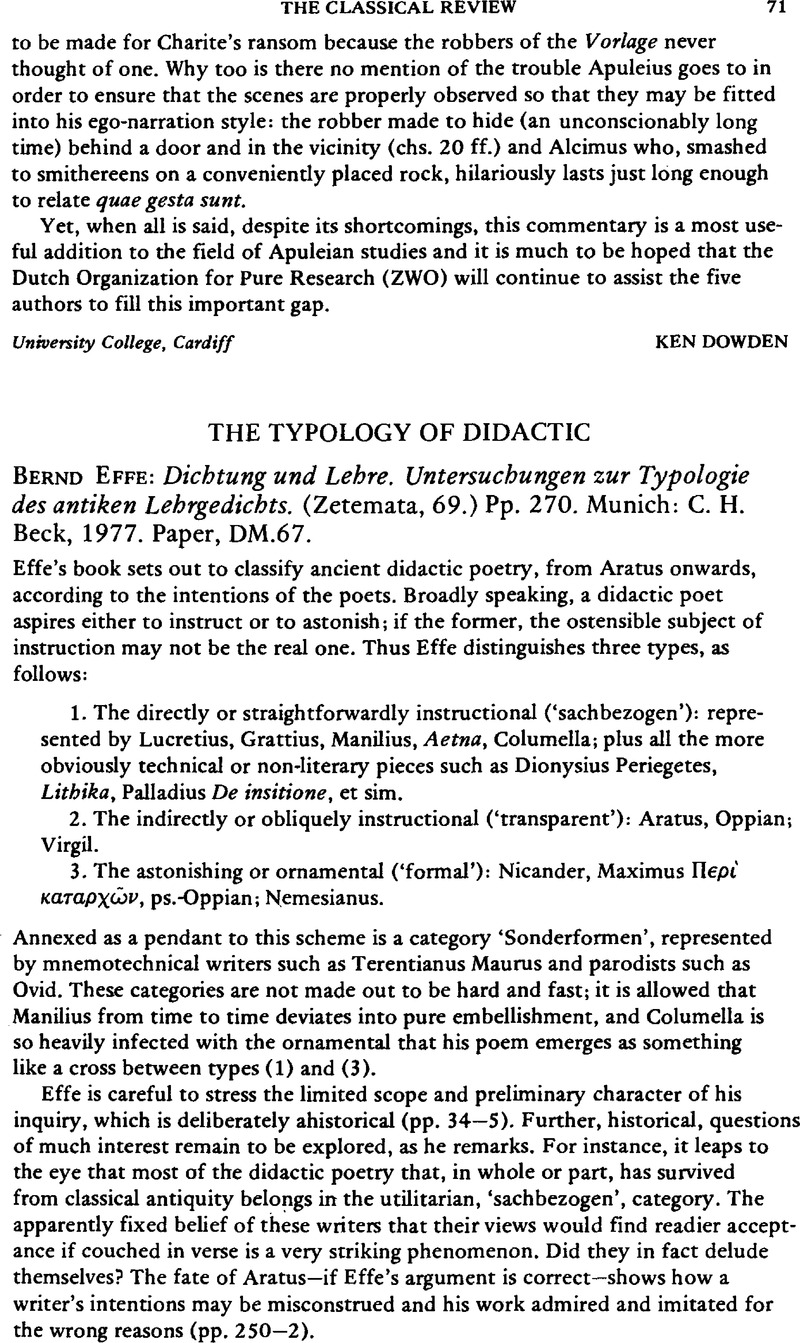Article contents
The Typology of Didactic - Bernd Effe: Dichtung und Lehre. Untersuchungen zur Typologie des antiken Lehrgedichts. (Zetemata, 69.) Pp. 270. Munich: C. H. Beck, 1977. Paper, DM.67.
Published online by Cambridge University Press: 27 February 2009
Abstract

- Type
- Reviews
- Information
- Copyright
- Copyright © The Classical Association 1979
References
1 However, I question if it is right to interpret ᾖ θ⋯μις at line 18 as ‘wie es angemessen ist …, d.h. in ihrer Funktion als Mittler der göttlichen Vorsehung, als Zeichen fμr die Menschen’ (p. 45). Whether the phrase is referred to ειπεῑν (Effe) or to εὐχομ⋯νῳ (Pasquali) does not affect its essentially formal character: apologetic = ‘to the best of my ability’ and placatory = ‘to the extent of what is allowed’. For the latter sense cf. Phaen. 768–71, another passage which I think Effe (p. 50) overinterprets.
2 Ci. e.g. Hes. fr. 163 M—W; Serv. ad G. 1.246, where both versions are given. The phrase el ει ⋯τε⋯ν δ⋯, with which Aratus introduces the story, is more significant than Effe appears to realize. Cf. Stinton, T. C. W., PCPS N.S. 22 (1976), 63Google Scholar: ‘Aratus is also [as well as A.R. 1.154] perhaps introducing a new or unfamiliar variant of legend when he uses the phrase el iredv to qualify the story of how the Great and Little Bears came to be constellations.’
3 One example may be given. Effe comments (p. 111) on the Proem to Book 2 of the Astronomica: ‘Es ist deutlich, dass sich Manilius in erster Linie gegen eine bestimmte Spielart der hellenistischen Lehrdichtung wendet: gegen den hier als “formal” bezeichneten Typ.’ That may have been what he intended, but if so he let his pen run away with him. What he explicitly (cf. Effe, p. 110) claims is originality: 49 ff. ‘omne genus rerum’ eqs.
- 1
- Cited by




